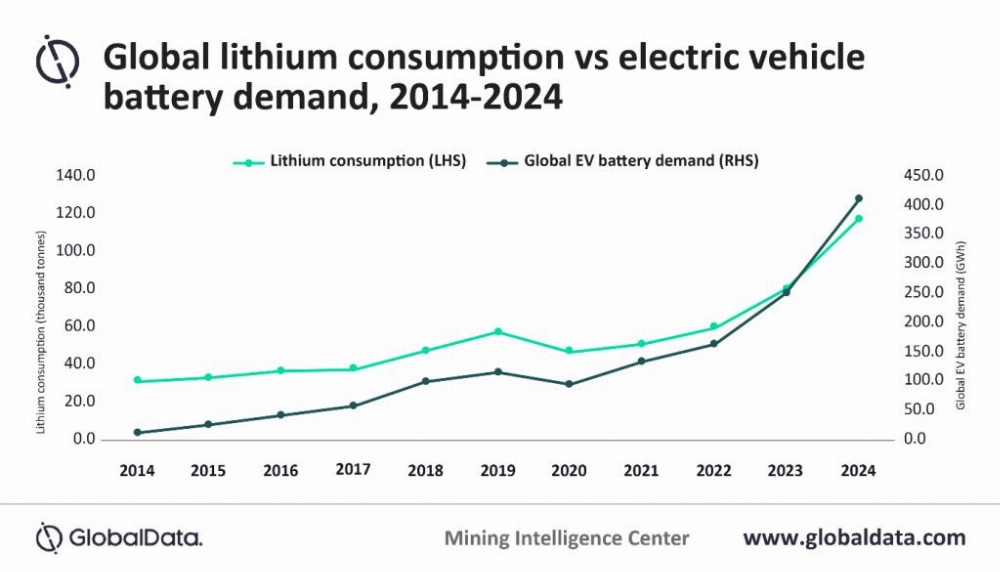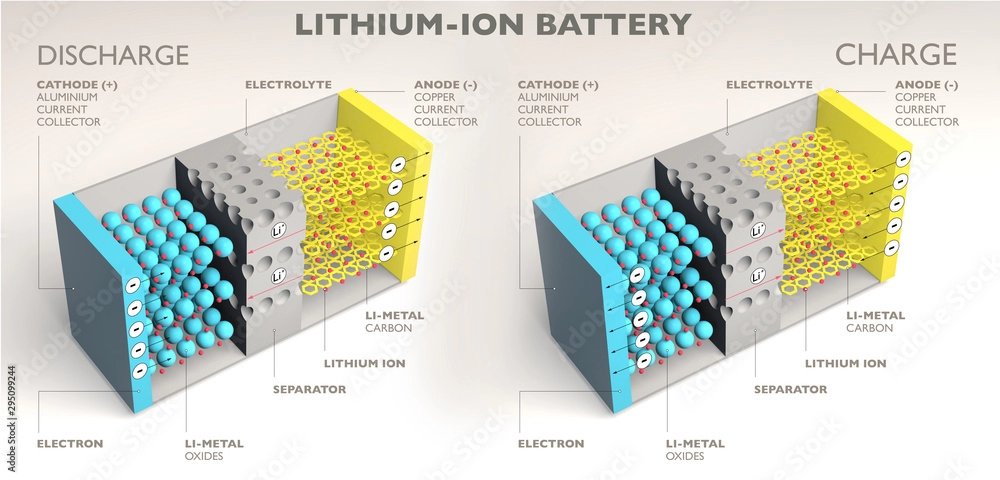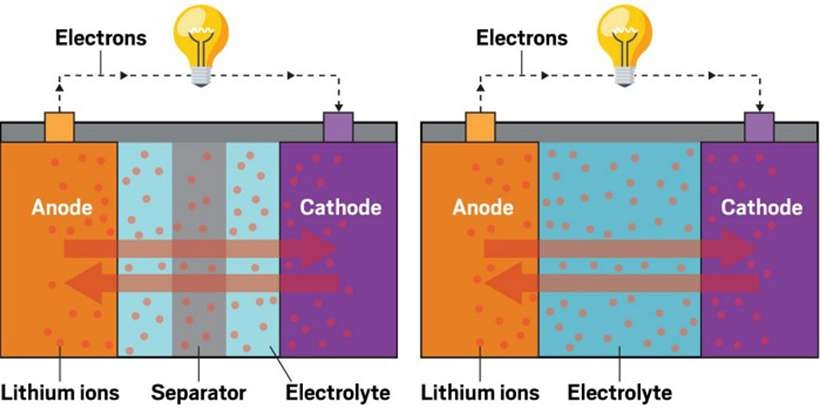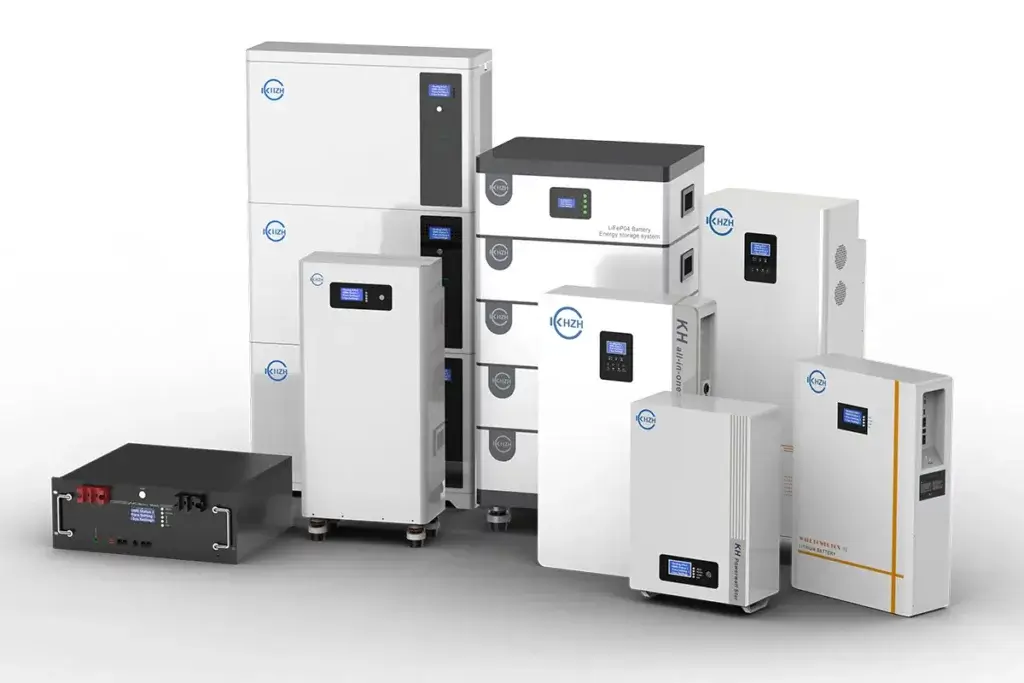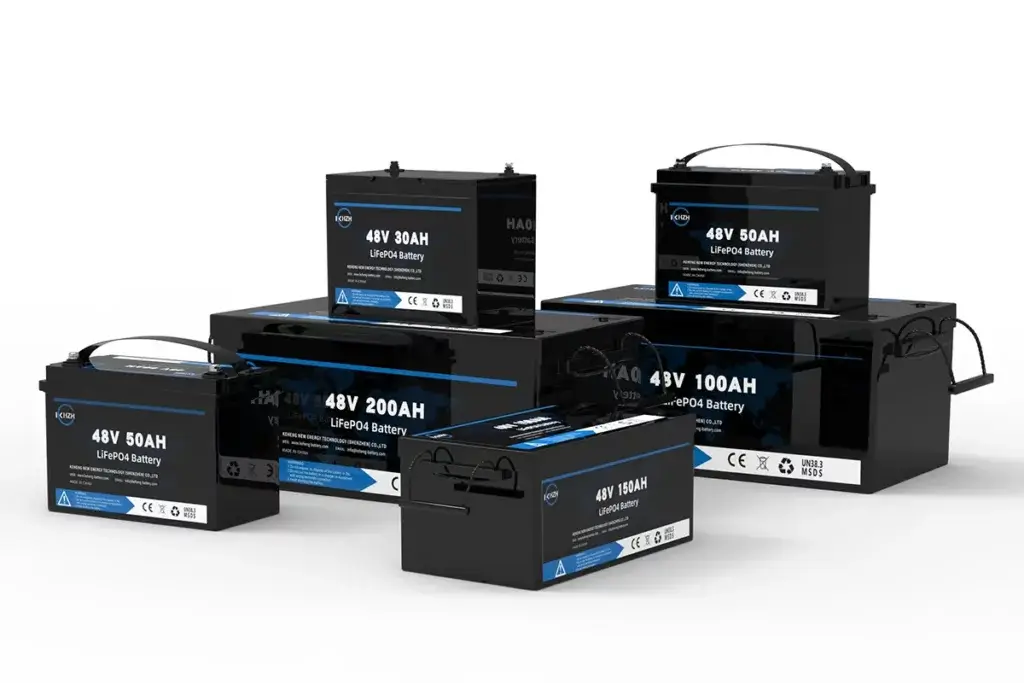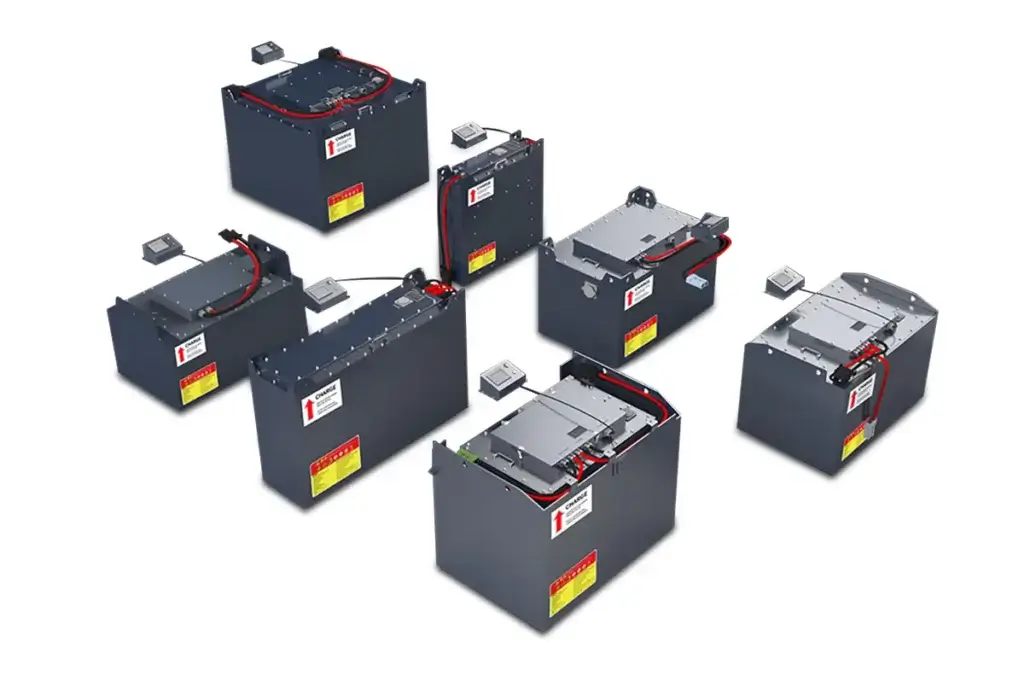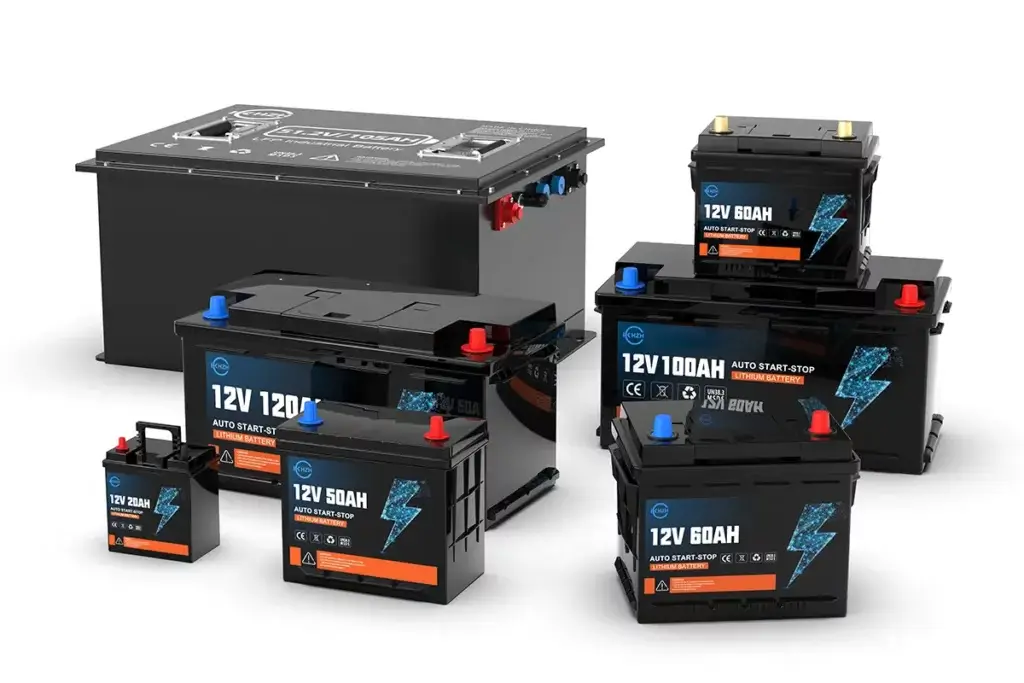Understanding Lithium Battery Charging
Lithium batteries store energy by moving lithium ions from the positive electrode to the negative electrode through an electrolyte. This charging process ensures that the battery stores energy for later use. Proper charging is essential to extend the life and efficiency of lithium batteries.
The Importance of Proper Charging
Correct charging is the key to extending the life of lithium batteries. Overcharging or using the wrong voltage may damage the battery or significantly shorten its life. Always use a charger that matches the voltage of the battery. For example, 12V lithium batteries should be charged with a compatible 12V charger. It is also important to avoid charging at extreme temperatures – any temperature above 122°F or below 32°F can cause irreparable damage to the battery, such as the lithium plating on the anode.
Charger type: slow vs. fast charging
The type of charging directly affects the life of the battery. Slow charging is ideal, where the charger output is approximately 10% of the battery’s total amp hours (e.g., charging a 100Ah battery at 10A for 10 hours). This type of charging generates less heat and helps protect the battery. On the other hand, fast charging (where the charger delivers 40-45% of the amp-hour capacity) charges faster, but may increase battery temperature and may shorten battery life if used frequently.
Temperature Considerations During Charging
Temperature plays a critical role in the lithium battery charging process. Charging at low temperatures (below 32°F) can lead to lithium plating, a permanent problem that causes battery failure. At the same time, high temperatures (above 120°F) can reduce the stability of the battery electrolyte, which can shorten the life of the battery. Always charge within the manufacturer’s recommended temperature range and use a charger suited for extreme temperatures if necessary.
Charging Lithium Iron Phosphate Batteries
LiFePO4 (Lithium Iron Phosphate) batteries are commonly used in solar energy systems for their stability and long life. Solar panels are ideal for charging these batteries, providing an environmentally friendly and cost-effective solution. Make sure you choose a lithium charger that is sized for your battery system to ensure safe and efficient charging.
Solar Panel Charging
Solar panels are an excellent way to charge lithium batteries, especially lithium iron phosphate battery systems. Not only is this method environmentally friendly, but it also helps save on energy costs in the long run. For best results, use a Li-ion battery charger that matches the size of your system with a solar panel.
Using a DC-DC Charger
A DC-DC charger is a great solution when you need to convert one DC voltage to another to match the battery voltage. It ensures a steady flow of energy and is efficient at charging in an off-grid setup or when using solar panels.
Using an inverter charger
An inverter charger functions as both an inverter and a charger, making it convenient to power and charge lithium batteries at the same time. Inverter chargers are especially useful in RVs, yachts, or off-grid homes that require an integrated system.
Portable Lithium Battery Chargers
Portable lithium battery chargers are perfect for those who need the flexibility of charging anywhere, anytime. Whether you’re out camping, traveling, or just need a backup charger, these devices are efficient and convenient for your needs.
Can lithium batteries be used with regular chargers?
Ordinary chargers are usually not suitable for lithium batteries, which require precise voltage and current regulation. Using a non-specialized charger may lead to overcharging, overheating and even battery failure. To ensure proper charging and prolong battery life, it is best to use a charger designed specifically for lithium batteries.
Why the right charger is important
Choosing the right charger for your lithium battery is critical. The right charger ensures that the battery receives the proper voltage and current, which is critical to the health and life of the battery. Without the right charger, the battery may be damaged or have reduced performance.
Do lithium batteries need a special charger?
Yes, lithium batteries do require special chargers. Li-Ion batteries have specific charging needs, such as precise voltage and current limits, which cannot usually be met by ordinary chargers. Using a charger designed specifically for lithium batteries ensures safe and efficient charging and prolongs battery life.
What if I don’t have a lithium battery charger?
If you don’t have a Li-ion battery charger, depending on your setup, it may be feasible to use an alternative such as a DC-DC charger or a solar panel charger. However, to ensure safety and long-lasting performance, it is best to purchase a charger specifically designed for lithium batteries.
General Charging Guidelines for Lithium Batteries
- Always use a charger that matches the voltage of the battery.
- Avoid charging at extreme temperatures.
- For slow charging, use a charger that delivers approximately 10% of the battery’s total amp-hour rating.
- If fast charging is required, use a charger designed for that purpose, but avoid frequent use of fast charging to protect the health of the battery.
Secure connections during charging
Ensure that all connections are secure and properly installed during charging. Loose or unstable connections may cause safety hazards such as sparks or heat buildup. Check the charging equipment regularly to prevent any potential problems.
Conclusion
Understanding the proper charging procedures for lithium batteries is critical to maintaining their health, longevity, and performance. By following proper charging techniques, using the right charger and taking temperature conditions into account, you can ensure that your lithium batteries operate efficiently and last longer.
Learn more about batteries
- Do propane forklifts have batteries?
- OCTA Purchases 50 New Flyer Electric Buses: The Future of Zero-Emission Public Transportation
- What Makes a Good Marine Battery?
Stay up-to-date and get the most out of your battery system with the right knowledge and tools. For an in-depth look at battery charging principles and more, check out our comprehensive guide to battery cells, modules and packs.
Lithium Battery Charging: A Comprehensive Guide
Solar charging of lithium batteries
Solar panels are a great solution for charging lithium batteries, especially when installed on an RV, boat, or sunny house. On sunny days, solar charging is a great way to keep your batteries topped up without relying on other sources of energy. It’s an environmentally friendly and efficient way to charge your batteries and is perfect for keeping them topped off during your adventures.
Use a DC-DC charger
A DC-DC charger is an efficient way to charge your lithium batteries, especially on the go. This device allows you to charge your car battery while on the go. A DC-DC charger boosts the voltage of the alternator to ensure that the Li-ion battery receives the proper charging current. The dual input DC-DC charger can even charge from the alternator and solar panel at the same time to speed up the charging process. This feature is especially useful for RVs or vans, where maintaining battery charge is critical.
Lithium Battery Inverter Chargers
Inverter chargers are ideal for those who regularly use electrical outlets. These devices can charge lithium battery systems by connecting the battery to a power source, such as a household outlet or campground power source. Once connected, the inverter charger will automatically manage the charging process. While this method tends to be more expensive due to the price of the inverter, it offers the convenience of easy charging at home.
Portable Solar Lithium Battery Charger
A portable lithium battery charger is a great solution in situations where sunlight exposure is limited, such as prolonged rain or cloudy days. This compact charger comes with alligator clips for easy battery attachment. Simply clip the alligator clips onto the battery terminals, place the charger in a safe position, and plug it into an AC outlet. This alternate charging method ensures that you can charge your batteries in low sunlight, whether you’re at a campground or at someone’s house.
Extending the life of lithium batteries
Using different charging methods can significantly extend the life of your lithium batteries. Continuously charging your batteries via solar panels, DC-DC chargers, inverter chargers or portable chargers will ensure long-term reliability and performance.
Can I use ordinary chargers for lithium batteries?
Lithium batteries, especially lithium iron phosphate batteries, operate at higher voltages than traditional lead-acid batteries. For example, the voltage of a fully charged lithium battery can reach 14.4 V, while the peak voltage of a lead-acid battery is 12.8 V. A standard lead-acid charger is unable to fully charge lithium batteries, and may even cause damage due to incorrectly set charging curves. Therefore, it is critical to use a charger designed to handle the higher voltages required by lithium batteries to ensure safe and effective charging.
The Importance of Using the Right Charger
The performance and safety of lithium batteries depends on using the right charger. Lead-acid chargers are not suitable for the specific charging requirements of lithium batteries. Using such chargers can trigger error codes and even damage the battery, charger and connected electronic devices. To avoid these problems, it is important to purchase a charger designed specifically for lithium battery technology.
Do I need a special charger for lithium batteries?
It is not recommended to use older lead-acid battery chargers to charge lithium batteries. Lead-acid battery chargers are not designed for lithium batteries and may not provide the correct charge profile. These chargers may trigger error codes, especially if the battery is already fully charged. In addition, they may damage the battery, charger, and other connected devices. For best performance and longest life, choose a lithium battery charger that meets the technical voltage and cycling requirements for lithium batteries.
Alternative charging solutions for lithium batteries
While using a dedicated charger for lithium batteries is always the best option, there are other alternatives that can be used in an emergency. Chargers with AGM and gel settings are closer to the needs of lithium batteries than standard lead acid chargers. However, they still do not provide the exact voltage required. Whenever possible, choose a charger specifically designed for lithium batteries to ensure optimal charging and safety.
Charging Lithium-Ion Batteries: A Basic Guide
Charging Basics
To ensure the safe and efficient charging of lithium batteries, it is critical to use a charger that is designed for lithium batteries and matches the voltage of the battery. For example, if you are using a 12V battery, be sure to use a 12V lithium battery charger. This helps to ensure safety and achieve optimal charging performance.
Safe Connection
Always turn off all electronic devices before connecting the charger. When connecting the charger, carefully follow the steps below:
- Connect the positive output of the charger (usually marked in red) to the positive (+) terminal of the battery.
- Connect the negative output (usually marked in black) to the negative (-) terminal of the battery.
Keep in mind: positive to positive, negative to negative.
Conclusion
Properly charging lithium batteries is essential to ensure their safety and prolong their life. Using the right charger and following the correct charging method will ensure that your battery stays healthy and efficient. Whether you are charging your battery or performing routine maintenance, good charging habits can significantly extend the life of your battery and improve its overall performance.
Powered by KHZH.
